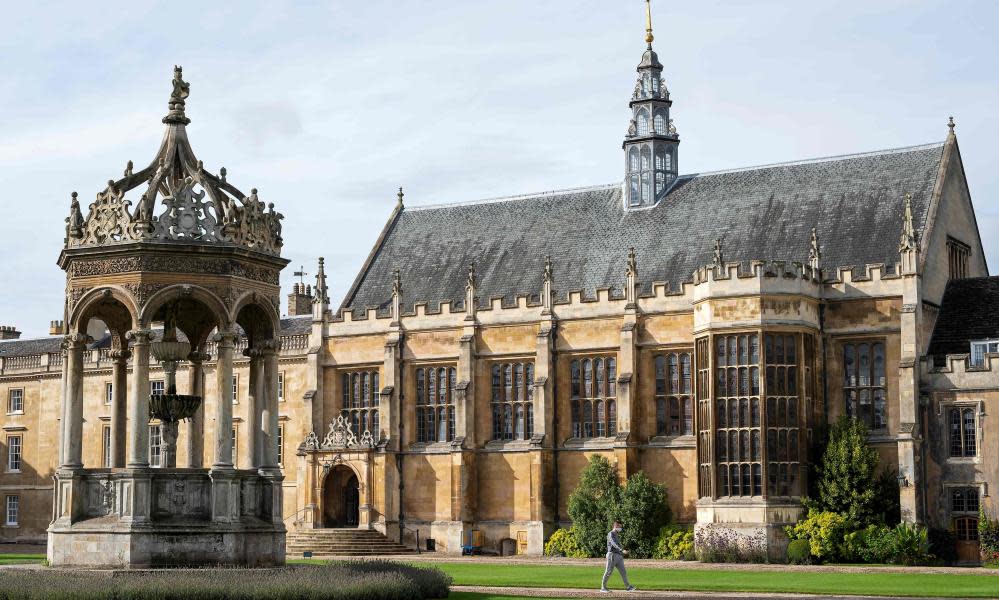Oxbridge student groups to be exempt from ‘unfair’ free speech law

Oxbridge student groups are to be exempt from the legal restrictions imposed by the government’s new free speech legislation, leading to accusations of “ridiculous” double standards by ministers from opposition MPs.
Michelle Donelan, the universities minister, told MPs in a debate on the higher education (freedom of speech) bill that imposing the duties on Oxford and Cambridge student common rooms would be “unnecessary and overly bureaucratic”. Labour MPs protested that special treatment for Oxbridge was unjustified and created a two-tier system across universities.
Emma Hardy, the Labour MP for Hull West and Hessle, said: “When we are talking about student unions and organisations, we are not just talking about Oxford and Cambridge, we are talking about all the small universities and colleges as well.
“It seems fairly ludicrous to me that every aspect of the bill would apply to the very small higher education provision at Hull College, but would not apply to the junior common room. That does not seem equitable or fair.”
Related: Campus free speech law in England ‘likely to have opposite effect’
Last week the government accepted an amendment to include Oxbridge colleges under the bill going through parliament. But it excluded Oxbridge student common rooms from being subject to the proposed law, which exposes universities and student representatives in England to legal action and regulatory punishment by the Office for Students (OfS).
The bill would mean all higher education providers registered with the OfS and their student unions must “secure freedom of speech” for students, staff and speakers, including making venues available to groups or speakers regardless of beliefs, and publish a code of practice for all meetings and activities.
Common rooms are the Oxbridge college-level equivalent of student unions, electing officers and often running their own facilities including bars and room bookings, with junior common rooms for undergraduates and middle common rooms for postgraduates.
Donelan told MPs: “Since a bill introduces new routes of redress for individuals who believe that their local freedom of speech or academic freedom has been improperly restricted, it is vital that the right institutions are held responsible.
“Colleges do fund their junior and middle common rooms. And to that extent, they can exert a lot of control over their activities, as these groups do not own or occupy their own premises, or run the room booking systems. And so imposing these freedom of speech duties on [them] does seem quite unnecessary and overly bureaucratic.”
Matt Western MP, Labour’s shadow minister for universities, said: “It is ridiculous for ministers to say that students in Warwick or Hull should be subject to unnecessary, burdensome bureaucracy and their student unions at risk of being sued, but not the students of Oxford or Cambridge due solely to the makeup of the university.
“Labour in government introduced laws to protect every individuals’ right to freedom of speech. This unnecessary legislation is an attempt to distract from the Conservatives’ failures to support students over the last year.
“The government’s exclusive approach risks creating a two-tier system across our universities.”
Earlier this year, the middle common room committee of Magdalen College, Oxford, was heavily criticised by politicians and the media for its vote to remove a portrait of the Queen from its room.
Gavin Williamson, the then education secretary, attacked the decision as “absurd”, leading to front-page news coverage. Members of the common room committee later received deaths threats and antisemitic abuse.

 Yahoo News
Yahoo News 
